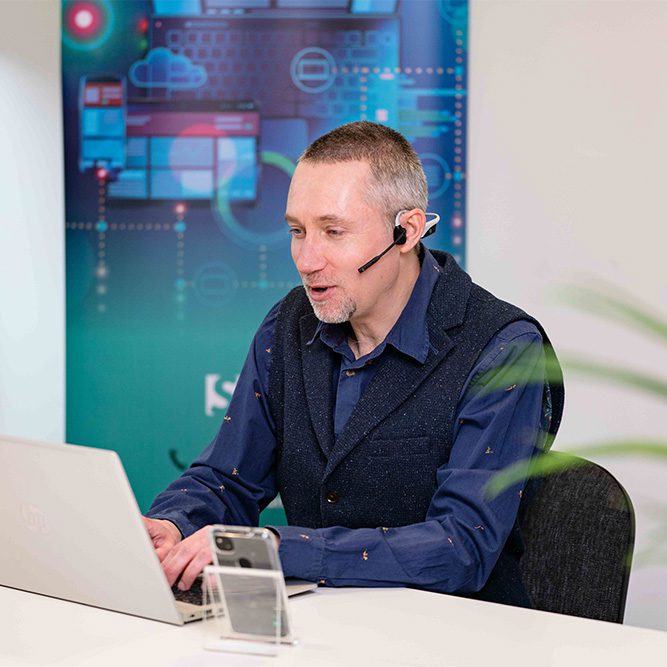In the next article from our series about Year End tax planning, we look at points to consider on profit extraction. It is important to realise that recent tax changes continue to make profit extraction strategy for director-shareholders in family companies a complex matter. Gone are the days when advice could be neatly summarised as ‘low salary, take the rest as dividends’. Bespoke planning has never been more important.
Adapt extraction strategy for National Insurance changes
A major new element for planning is the changed outlook for employer National Insurance contributions (NICs) from 6 April 2025.
Whilst the changes do not impact director-shareholders in their capacity as employees, they certainly do in their capacity as owner-employers. The overall impact will depend on specific circumstances, and we can help you to ascertain how these changes will affect your business.
Although that though employer NICs continue to be due, employees don’t pay NICs when they reach State Pension age. This may help inform thinking on extraction strategy for senior family members.
Paying a salary
From the company’s perspective, salary and employer NICs are generally deductible business expenses for Corporation Tax purposes. Traditionally, many family companies have set salary at a level preserving State Pension entitlement but minimising the level of NICs due. In many cases, a salary covering the standard Personal Allowance was appropriate.
However, the new, lower threshold for employer NICs, the widening gap between employer and employee NICs, and changes to the EA, mean that the decision will now need greater attention. A wide range of issues, including the level of any other income, personal circumstances of each director, company performance, activities and group structure will all need to be taken into account.
Extraction through dividends
The Dividend Allowance is now £500 for 2024/25 and the foreseeable future. The rate of tax on dividend income has become higher in recent years, and altogether, profit extraction through dividend payment has become much more expensive. It may still be tax efficient to take profits as dividends in some circumstances, but the decision is becoming finely balanced.
Key considerations
- Dividends do not incur NICs, meaning a potential for saving for the director-shareholder as employee, and the company as employer. In addition, dividends are still subject to lower overall Income Tax rates than non-savings income. However, as dividends are paid out of retained (post-tax) profits, it is also important to factor this into calculations, especially with current higher Corporation Tax rates.
- Dividend payments do not qualify as relevant earnings for personal pension payments.
Extraction via bonus
A bonus is subject to Income Tax and NICs for the director-shareholder, and employer NICs for the company. It is however a deductible expense for Corporation Tax purposes, and so can be used to reduce taxable profits or generate a loss.
Depending on your circumstances, it may be more efficient to extract profits as a bonus, for example where there are not sufficient retained profits out of which to pay a dividend at the required level, perhaps where an overdrawn director’s loan account needs to be cleared.
Use timing of bonus to advantage
The timing of any bonus determines when it is chargeable to tax for the director-shareholder. It may be possible to defer taxation to a later tax year, or include in the current tax year, depending on how and when the bonus is declared. It is important to get timing and procedure correct, and we can advise further here.
As regards Corporation Tax, it may be possible to retain a deduction for the company in the current accounting period, so long as the bonus is paid within nine months of the company year end.
Profit extraction through pension contributions
Pensions provide significant planning opportunities. Extracting profit by means of employer contributions to a personal pension for a director comes with a double advantage: the company, as employer, gets tax relief and saves on NICs; and the director-shareholder, as employee, gets a benefit free of tax and NICs.
If a spouse, or perhaps adult children, are also employed in the business, the company could make reasonable contributions on their behalf.
Note that employer contributions must meet the ‘wholly and exclusively for the purposes of the trade’ test. The overall remuneration package must also be commercially justifiable, whether the contributions are for director-shareholders or family members employed. Do also bear in mind that employer contributions are taken into account for the individual’s annual allowance.
The forthcoming increase in employer NICs costs makes profit extraction by means of employer pension contributions, which do not attract NICs, additionally advantageous. Please talk to us for specific advice.
If you’d like to discuss profit extraction for your business, or talk to us about how we could support you on outsourced accounting services, please get in touch with us on info@teamsas.co.uk or call 0118 911 3777.
A previous article on the subject of profit extraction can be found in the article on this link.
Disclaimer: The information contained in this website is for general information purposes only. The information is provided by Specialist Accounting Solutions Ltd and while we endeavour to keep the information up to date and correct, we make no representations or warranties of any kind, express or implied, about the completeness, accuracy, reliability, suitability or availability with respect to the website or the information on the website for any purpose. Any reliance you place on such information is therefore strictly at your own risk.




